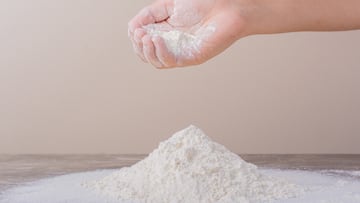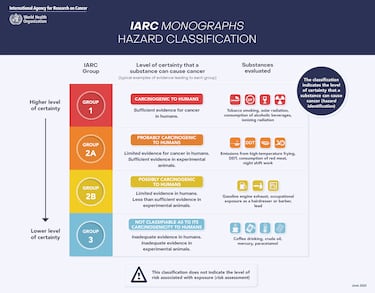Is talc bad for you? WHO declares talc ‘probably carcinogenic’
The WHO’s International Agency for Research on Cancer has declared talc as ‘probably carcinogenic’ to humans. Here are some of talc’s effects on health.

The World Health Organization (WHO) has classified talc as a “probably carcinogenic” substance for humans. The International Agency for Research on Cancer (IARC), a WHO organization, issued the warning after a study showed that this mineral can cause cancer in people.
The agency establishes talc at level two of the danger identification pyramid, which indicates that the studies are limited regarding the effects on humans, although there is “sufficient evidence in experimental animals.”
READ ALSO: Screw loose AI robot commits suicide

This implies that talc has the “key characteristics of carcinogens in human cells and experimental systems,” the IARC explained in a statement. Acrylonitrile, a strong-smelling compound used for the manufacture of plastics and textiles which was used in the past as a pesticide, has also been identified as dangerous to humans.
Cosmetics and makeup, products which contain talc
Talc is a mineral to which a large part of the population is exposed, not only during its processing, but also due to its presence in cosmetics and hygiene products. The WHO has also expressed its concern about talc that could contain asbestos, which can be part of some makeup products and body powders. The level of certainty of scientists about the danger of this compound is similar what they have indicated regarding the effects of consuming red meat and working night shifts.
READ ALSO: Shark attack in Texas caught on video: woman’s leg severely injured, hospitalized
Johnson & Johnson and the controversy over talcum powder
There were numerous studies in the past that showed an increased incidence of ovarian cancer in humans who used talcum powder, particularly women who applied it on their genitals. However, the IARC could not rule out that the talc samples studied could have been contaminated with carcinogenic asbestos.
Related stories
Pharmaceutical company Johnson & Johnson was sued by several thousand Americans for the alleged presence of carcinogenic components in talcum powder. The controversy reached such a level that the company had to suspend the sale of this product around the world. Despite the company arriving at settlements with plaintiffs and their withdrawal of the powder from the market, it did not admit to any wrongdoing.
Experts recommend reducing the use of talc
Experts say that using this product regularly does not necessarily mean that cancer will develop. Getting sick from talc will depend on the dose of exposure, the length of time of use, and how it is applied on the body. Avoiding the use of powders with this component is recommended for the genital areas, especially in the case of women. The studies concluded that the application of talcum powder in this area showed a slight increase in ovarian cancer in women, although these results are not absolutely conclusive since the sample size was not considerable.


Complete your personal details to comment